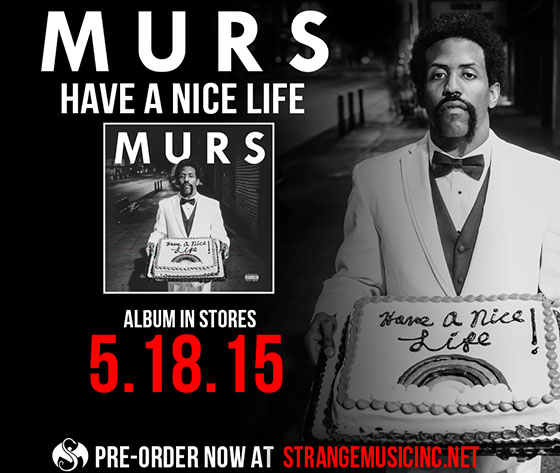‘He Makes A Connection’ – Producer Jesse Shatkin Talks MURS and ‘Have A Nice Life’
Apr 1 2015
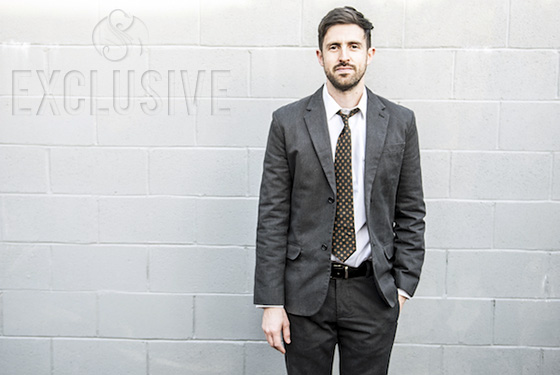
With Grammy-nominated producer Jesse Shatkin, MURS got a brand new sound to go with his Strange Music album debut Have a Nice Life.
With a sound that’s usually pigeonholed as “backpack” and “underground”, MURS has felt a need for bigger, more accessible production to express himself. With Jesse Shatkin, producer of Sia’s “Chandelier”, as well as songs from Kelly Clarkson, P!nk, and Kylie Minogue, MURS certainly got the sound he was looking for. With an incredible sense of melody and pop orchestration (as well as gritty drum patterns when needed), Jesse Shatkin and MURS might have created the most radio-friendly hip hop you’ll hear in 2015.
We talked to the producer (who actually got his start producing rap and also grew up with MURS) to get his perspective on the making of Have A Nice Life, and how his production fused with MURS’s poignant lyrics to create a completely new sound in hip hop.
Now, I know you started out doing hip-hop. Did a lot of the things you learned in that period carry over to pop when you made that transition?
Yeah, I think I’ve been able to keep the zeal and the spirit of what I was doing originally, and I’ve always tried to tap into it and recapture it, because I feel like when I first started doing it that it was completely untrained and unfiltered. It’s probably the purest form of what I was trying to express, because I had no clue what I was doing. So, I tried to, in my head, go back there a lot. Just to see how much else…as a kid, just loving underground rap music – “Would I like this now?”, and “What would I like about it?”, and stuff like that. So, yeah, I think I’m able to kinda stay in touch with that original spirit of creating.
Have you ever felt like the more you learned, especially with like, chord progressions and theory, that it took away from your sense of expression?
You know, I haven’t found that. I think that maybe it would be a question for a listener more than for me, because to me, the more I learn, the more excited I am about it. With that being said, there’s still so much that I don’t know. So, I still feel like I kind of have a little bit of an “ignorance is bliss” to my songwriting approach compared to other people out there that know so much. I’m not really afraid to learn more, and I want to learn more, because I’ve seen people who are actually musical, genius prodigies make the best, most amazing pop and hip-hop tracks. I think there’s a way to put all of that knowledge into something very simple and perfect, if you can master it.
Quincy Jones is such a jazz guy, but made the best-selling pop stuff.
That’s a perfect example.
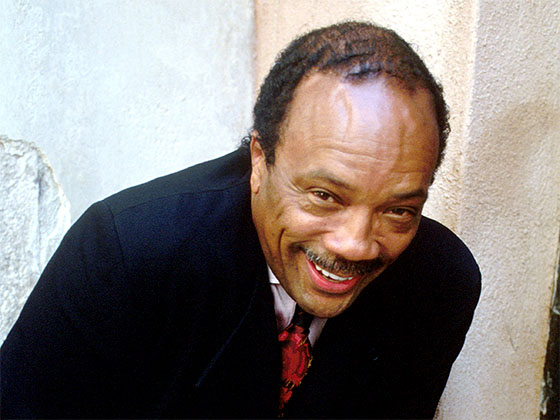
The MURS record sounds big and has a lot of polish. Obviously, I’m sure you picked up a lot from engineering for Greg Kurstin, but did your production always have some of these qualities?
No, definitely not. Calling it “big” and “polished” were not characteristics of my tracks ten years ago, I don’t think. There’s energy and spirit and a lot of things, but not polished. Polished is something that I’ve learned to do. At this point, it’s kind of hard not to do for me, because it’s just how I hear things now. That’s kind of a relatively new thing for me.
When did you and Greg link up?
I think it was probably five or six years at this point, I forget exactly when.
So you’re a pretty quick learner or a hard worker, or one of the two.
Yeah, it was more than a full-time job for all that time, and I was just really there working pretty intensely on his stuff. Then, after I would leave the session, or before them, I would be kind of doing my own thing and trying to apply all those things I was learning and soaking up there. At the same time, I felt like I had no time to waste. I wanted to make stuff happen. Four or five years is a good amount of time to cook up all these things.
The thing is, I’ve been working in music still ever since I was a kid, whether it was making tracks for MURS or any of the rappers that I used to work with. On the East Coast, it was like all the Def Jux stuff I used to do. Whether it be that, or commercials, or movie trailers – so it was like I was always working on music. I think it was kind of prime to soak up a lot of information, because my brain was already working all the time and thinking about music.
If you’re working with a guy like that, you better learn or else he’s probably going to get somebody else.
Well, you know, I was working primarily as an engineer and an editor, so a lot of the production stuff didn’t really come into play in the studio there. But I think after a few years of me putting into practice in my own studio, I was able to play and stuff and he’d be like, “Okay, I think you’re getting it.”
I would think it would carry over into shaping the sound of your production, though.
Oh yeah, totally. I think that being a halfway decent mixer is important to being a producer, because if your stuff doesn’t sound good, no matter how well produced it is, it’s gonna be hard to know. Also, if your vocals don’t sound good, it’s going to be unimpressive to listen to the song.
MURS told us a little bit about the history between you two, but you guys grew up together, right?
Yeah. We met in high school, and we were really good friends then. We DJ’d together, we did mixtapes together, and we got on records at the same time. After that, we’ve always stayed in touch. I did his early stuff, Def Jux with him, stuff along the way, and I had a record he got on and featured him, so we’ve always maintained a friendship and a little bit of a working relationship. It wasn’t hard for us to get back in the studio and get things going.
When was the last time you guys reunited? Did things pick up pretty easily once you guys got together?
I guess the last time we worked together…well, there were a few things that kind of happened around the same time. I was working on my buddy, Kyle Rapps‘s project and MURS did a feature on that, so we spoke about that. But then, also, I worked on this guy, Kosha Dillz’s album and MURS put that out. He liked the vocal sound, and he was just like, “Woah, Kyle, it’s me. I’m always trying to find the best way to record vocals, can you help me out?”
So, we got in the studio and we started writing stuff, and recording stuff, and it was like we got a lot of songs done, but we could’ve gotten a lot more done. There were a lot of times just bullshitting, catching up on old times, and hanging out – just like we used to. It definitely felt like a lot of time had passed, but at the same time, no time had passed. I think essentially – we joked about this – we’re both pretty much the same people we were back then. We hadn’t really hung out that closely since high school, but it didn’t seem that different…and it’s almost 20 years later.
That’s pretty funny.
If you do music for a living, on the one hand, you get older and you grow up to a certain extent, but at the same time, you’re kind of encouraged not to. You need to stay in a creative headspace.
I don’t know, most people our age don’t really even listen to music that much anymore. They just listen to talk radio or Howard Stern and play it for their kids, or whatever. So, for us, to be this involved in making music, it’s like you kind of have to not grow up to a certain extent.
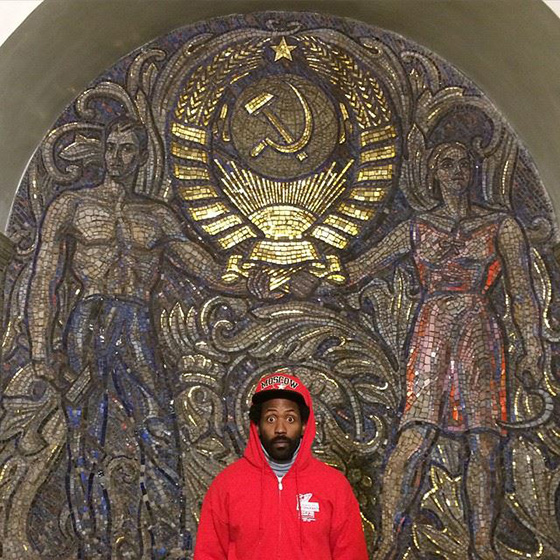
Have you been a fan of MURS and his music?
Oh, definitely. I was really impressed, supportive, and just happy for him. I think he always just kept getting better and better. Then the whole festival thing. I was just always impressed. Impressed, but not surprised, because I think he’s always had a work ethic and passion for it, even since we were kids.
What do you like about MURS as an artist?
I think that he has…what’s the word I’m looking for…it’s definitely substance over style in a way. I think that he has those commanding things about his performances. Whether on record or live, there’s something about him that makes you want to listen to every word he says. I think that’s because he keeps it relatively simple and really cares about his lyrics.
Coming from the West Coast, you know, like at the time and at the era we came from, there was a lot of – which I love, don’t get me wrong – but there was a lot of “Who could be the most innovative, stylistic rapper?” and I think MURS always went against that. I mean, I’ve heard him rap as good as anybody, as far as just kind of flipping it and doing really creative flow, but I think that he always cared a little bit more about making sure you heard what he said and that there was a lot of passion and spirit in the actual lyrics. I think that’s part of why people love him. He makes a connection.
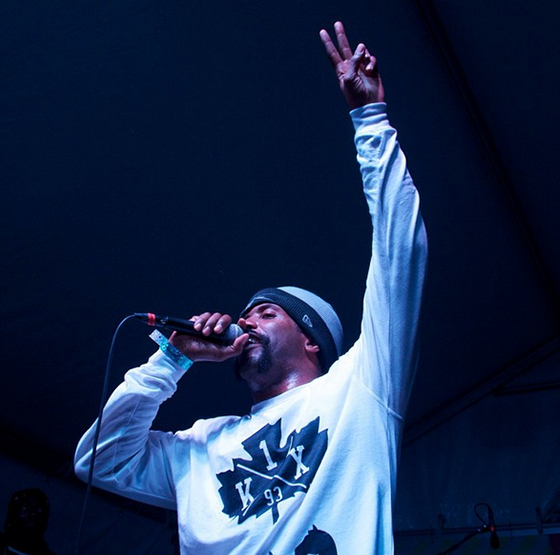
It’s interesting you say substance over style. In this album, we hear MURS bringing his substance, a lot of substance, but there’s a whole new style and presentation that your production, and a lot of these choruses, are bringing to the table. Did he have any specific requests from you for that? Did he say “I want this to sound big, I want it to sound, have some polish to it?”
I think that’s part of the reason why he got me involved, and that he wanted to try having a little bit more polish, and a little more accessibility from a production standpoint. Other than that, there wasn’t really a ton of talk as far as direction. I think it was just, “Let’s just get in the studio, let’s make something great,” and 90% of the songs we did were just writing from scratch in the studio.
He was interested in me doing my production thing, as far as getting things sounding good and big, but other than that, it’s just like, “Let’s just do our thing.” There were times where it was like, “Let’s try to recapture the things that we used to love as kids,” whether it be Freestyle Fellowship or some other old-school – you know, not that Freestyle Fellowship’s old-school, but some classic stuff that we loved. And, I don’t know if you can really hear it, but there was certainly some influence of just trying to recapture what we loved.
Did that shape where you wanted to keep going with it, you know? Did you take those cues?
I think that we’re just kind of like, keep going with what’s happening that day. Of the songs that we wrote, there’s a lot that didn’t make it, and those were kind of more playful, silly, fun songs, but I think what we were really drawn to were the more heartfelt, conscientious, and street-meaning types of songs. The process was pretty loose, but luckily, we did enough songs that I think we were able to put together a cohesive group of tracks.
The sound that you guys achieved is pretty new. It’s MURS’s substance combined with these huge sounds. Did you ever feel like that while you were creating it?
Yeah, I mean, it definitely felt like a little bit of walking a tightrope when we were doing it. As a producer, I really want it to sound authentic to the personality of the artist, but it’s my job to make it as big as possible, basically. So when we were in the studio, I was like, “Okay, here’s a sound. This is a sound that could work for MURS. Here’s a chord. This is a chord that could work for MURS. This is a drumbeat that could work for MURS. Okay, now I’ve gone too far, let me tone it down.” Or “Okay, I haven’t gone far enough into this direction or that direction.” So, definitely tailored for him, but at the same time, I kind of gave it my all, as far as all the things I’ve learned in the years, to make it the biggest, best version of that.
Definitely.
So I think that we probably couldn’t help but come up with something unique. And looking at it that way. Because MURS is unique, you know? He’s a weird dude.
It’s an interesting fusion that I honestly didn’t anticipate at all. When I was like, “Okay, MURS is putting out a record,” of course I had pre-conceived notions, but it blew those away. Having said that, also, you did produce the pre-order track, didn’t you? “Fun-eral?”
Yeah.
See, that’s some raw shit right there, but it also sounds big where it needs to be. It’s very well-done, well-mixed and all that. Is there any other dirty stuff in that record, kind of in that vein that you produced?
Oh yeah, definitely, definitely. I mean, I think that’s a pretty… I think there’s a lot of really raw-sounding shit on there, whether it’s big or not, it’s just like–
It’s nasty, though. When you hear that beat. It’s got that sinister quality to it, which I love.
You know what? “Sinister” is a word that came up a lot while we were making the record. He’s just like, “Okay, this is gonna be my sinister record.” And I was like, “It’s not going to be completely,” but there’s a lot of songs on there that – to me, “Okey Dog” has a sinister quality to it. “Anyway” has a little bit of a sinister thing to it, there’s a lot of that vibe. I think that “Fun-eral” was probably the most gritty. That may be why he put it off of the release, because it’s just like, I don’t know that it fits exactly on the record, but yeah, just a little different.
That song, though, was dope.
(Laughs) Thanks.
So, how do you like how the record came out? I assumed you listened to it, what do you think about it?
I’m excited about it! You know, there’s songs on there that I’m really proud of, and I’m really excited to see how it comes out. I also feel like me and MURS were just kind of getting started in a way. Towards the end, we were still doing stuff that we really liked. I’m really excited for this album, but I’m also excited to see what happens after this album.
That’s awesome to hear. You were saying you had some songs that you were really proud of. What are some of those? What are some of your favorite tracks from the album?
I think that “I Miss Mikey” is one of them. At some point, I was just like, “I don’t know if we got…weird about it,” or “I don’t know if we’ve done anything that feels beautiful, really,” you know? So I pulled that track out and he was like, “Okay, I have an idea for this,” and we did something that’s really heartfelt on the one hand, but also, musically, sounds like something that I’ve never heard on a rap record before. So that’s one of them. When I feel like we’ve achieved something really innovative, that’s always gonna be one of my favorite things.
I also love, “No More Control.” I think that song we cut has close to nailing it as we did as we did on the album. So that one and “Okey Dog”, these are just like, I love the story, and I love his tone of voice on there. it’s just like, sounds great. And “Sunday Morning Pizza” was just like, is that what it ended up being called? Or “Pussy and Pizza”?
“Pussy and Pizza”, yeah.
“Pussy and Pizza”, to me, that’s just like a fun-ass song that really captures a vibe in a perfect way. I love that song, too.
What are you working on now? What can we look forward to from you and what you’re doing?
I’m doing a lot of different things. I’m working on more stuff with Sia. I have some songs with this girl named Foxes that are coming out soon and I’ve been working with Fitz & The Tantrums.
Oh, nice.
What else have I been doing… worked with Brooke Candy on her new album, and me and MNDR have a project that we are working on. It could take awhile, but that’s something I’m really excited about. Twin Shadows’s new single, I’m co-producer on that, so that’s exciting. So… yeah, it’s kinda all over the map and there’s a lot of stuff that’s hard to remember, but that’s some of the stuff I’m excited about it.
- How do you think having a pop producer like Jesse Shatkin will benefit the album?
Give us your thoughts in the comments below.
